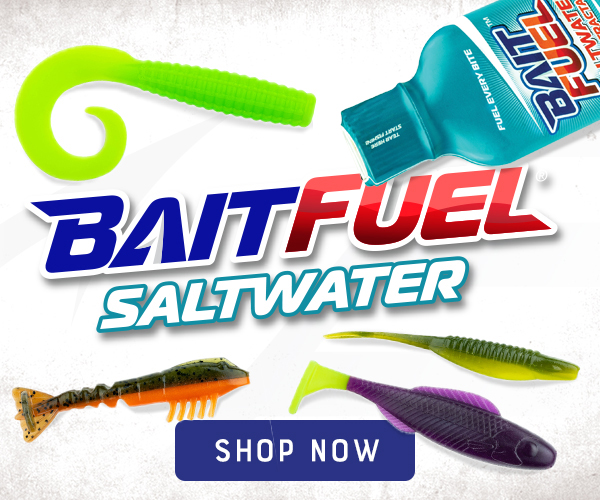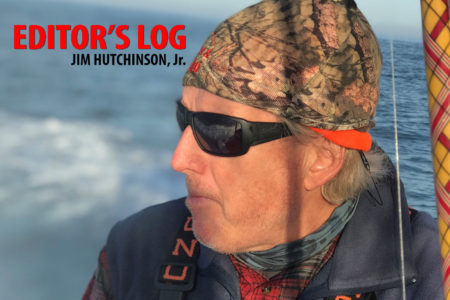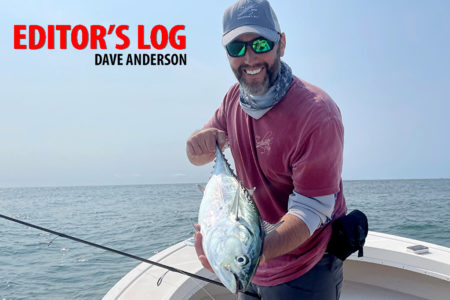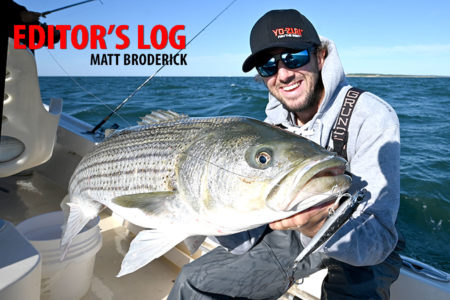As you’re gearing up for the spring kickoff, don’t forget your required license and/or registration information to keep it legal this season – and also to improve our local fisheries! In New Jersey, saltwater fishing is free for everyone, but everyone 16 and older must register at saltwaterregistry.nj.gov and print out the registration card (In New York it’s the easy to remember website, www.dec.ny.gov/permits/54950.html.). Most for-hire boats carry umbrella coverage, but since registering to fish NJ/NY waters is free, hit those websites now and fill out the information to help improve coastal data collection.
In freshwater, New Jersey anglers under 16 or age 70 or older are exempt from license and Trout Stamp requirements, you’ll need to carry proof age if checked. A resident recreational fishing license costs $22.50 for those 16 to 64, $12.50 for seniors, and a resident trout stamp is $10.50. Non-resident anglers 16 and older pay $34 for the season, $19.50 for seven-day permit, $9 for two-day permit and $20 for the non-resident trout stamp.
A new “Buddy” license is available in New Jersey, in which a current license holder and a new angler (or two new anglers) can get reduced price fishing licenses to fish in freshwater. The resident “fishing buddy” price is $11.75 and non-resident is $17.50 when two buddies purchase licenses together from an onsite licensing agent (eligibility requires at least one new angler).
In Delaware, the annual fee to fish is $8.50 whether you fish in fresh or tidal waters. The non-resident fee is $20, while a seven-day tourist license costs $12.50. Each license option entitles the holder to fish, crab or clam in any of Delaware’s waters, though you will need a Trout Stamp to fish Delaware’s trout waters.
Boat licenses are also offered in Delaware; a resident and non-resident boat fishing license for vessels 20-foot and under is $40, while over 20 feet costs $50. Having a boat fishing license means anyone fishing on that boat will not need a separate fishing license. However, anglers will need a Delaware-issued Fisherman Information Network (FIN) number, which can be obtained free at www.delaware-fin.com or by calling 800-432-9228.
In Delaware you are exempt from license requirements if you’re the operator of a vehicle with valid Delaware surf fishing vehicle permit inside a designated Delaware State Park surf fishing area, but normal licensing provisions will apply to other anglers in that vehicle. Again, you still need that FIN, which like New Jersey’s “registry” is a requirement of the 2006 reauthorization of the Magnuson Stevens Act.
Those 2006 changes to the federal fisheries law were meant to improve data collection; whether or not your contact information is properly being utilized by NOAA Fisheries is up for debate. The good news for local anglers is that the actual “onsite” data collection responsibilities have been handed over to those who actually understand our coastal fisheries a little better – the New Jersey Department of Environmental Protection (NJDEP) and Delaware Natural Resources and Environmental Control (DNREC).
A major component of the evolving Marine Recreational Information Program (MRIP), the Access Point Angler Intercept Survey (APAIS) was previously was administered by the federal government through a third party contractor. In an effort to fundamentally improve data quality and stakeholder confidence in that data, NJDEP and DNREC staffers are now out in the field conducting these critical APAIS interviews.
The intercept surveys target marine recreational anglers to gather information about your fishing effort as well as catch and participation in marine recreational fishing, with NJDEP and DNREC interviewers assigned to public fishing sites (jetties, beaches, marinas, piers, boat ramps, etc) using a random selection process proportional to the level of fishing activity. Your fishing reports – whether you caught zero or 50 fish – will help improve saltwater fishing opportunities in the region. If you do get “intercepted” while fishing this season, be courteous, be kind, be truthful, and most of all, be thankful that this critical task is now being coordinated by our state fish and game folks, local anglers themselves who better understand our local fishing!
Many of us (me in particular) have complained loudly about never having been surveyed before; let’s embrace the opportunity to be a part of the process!



